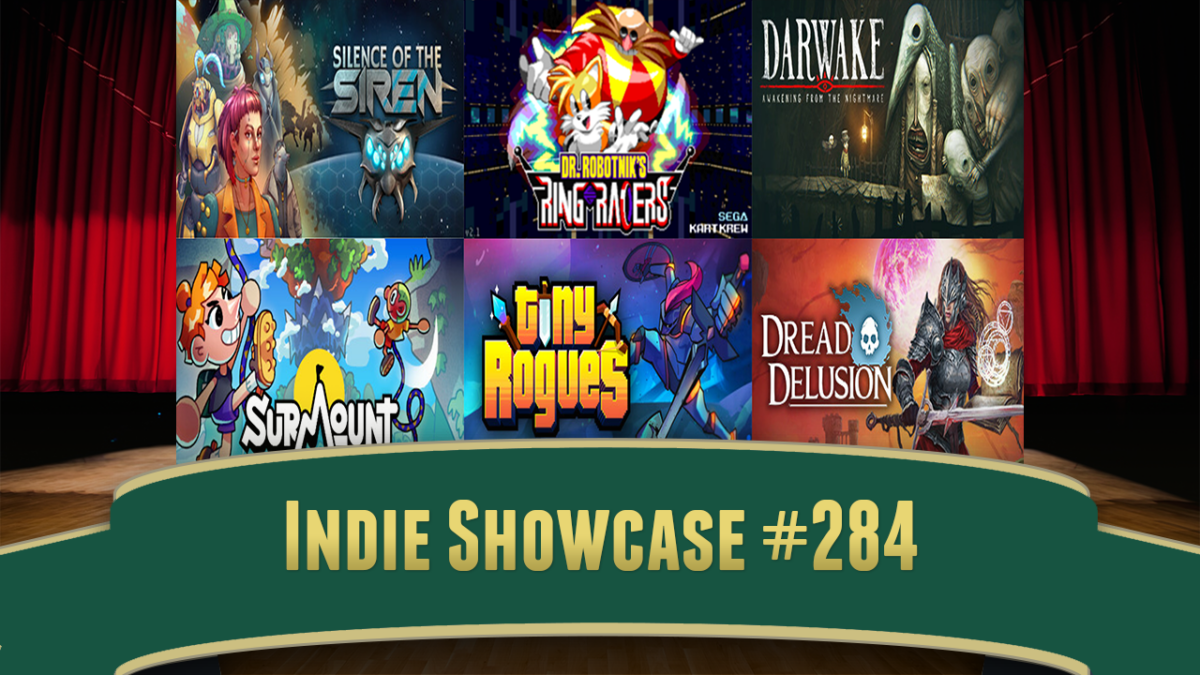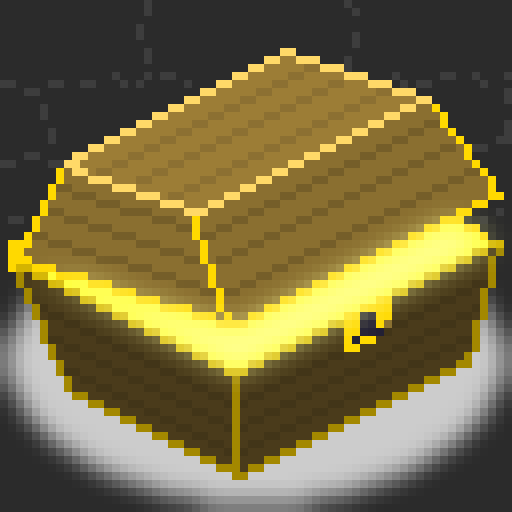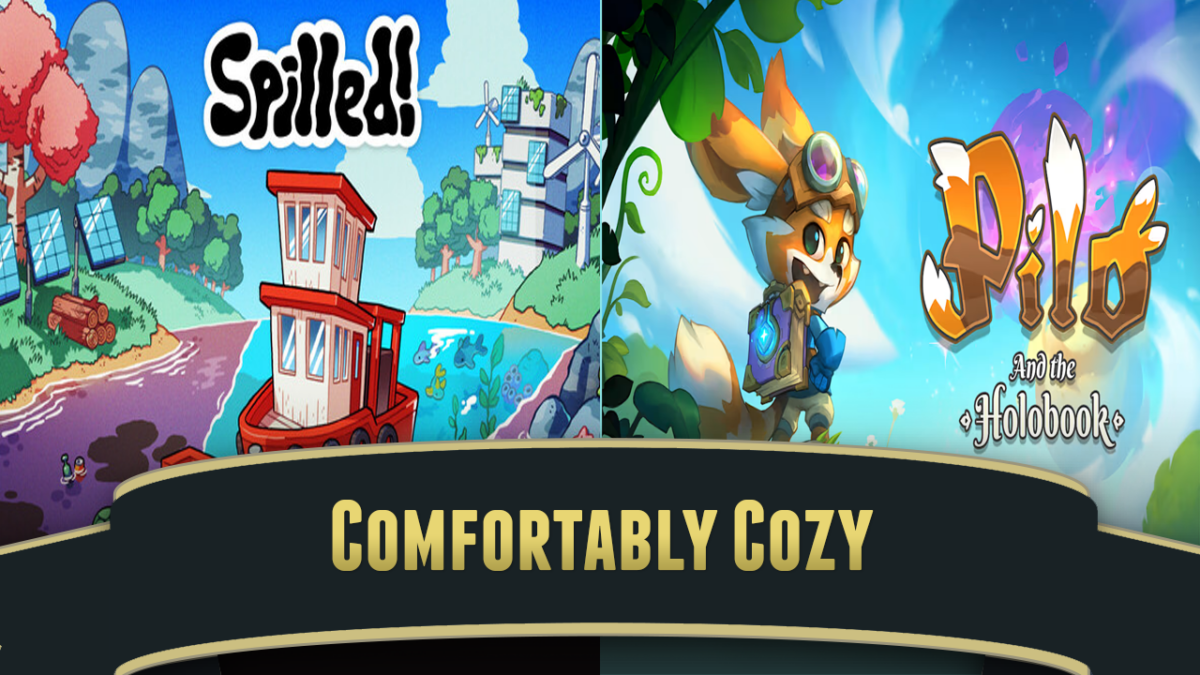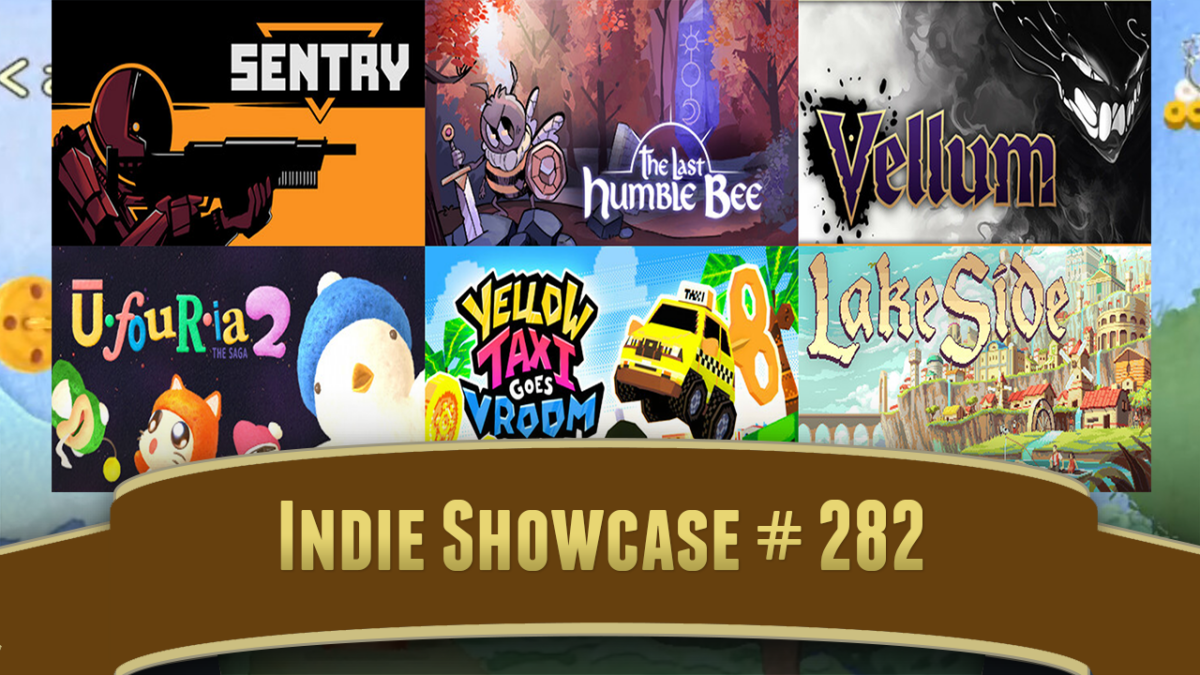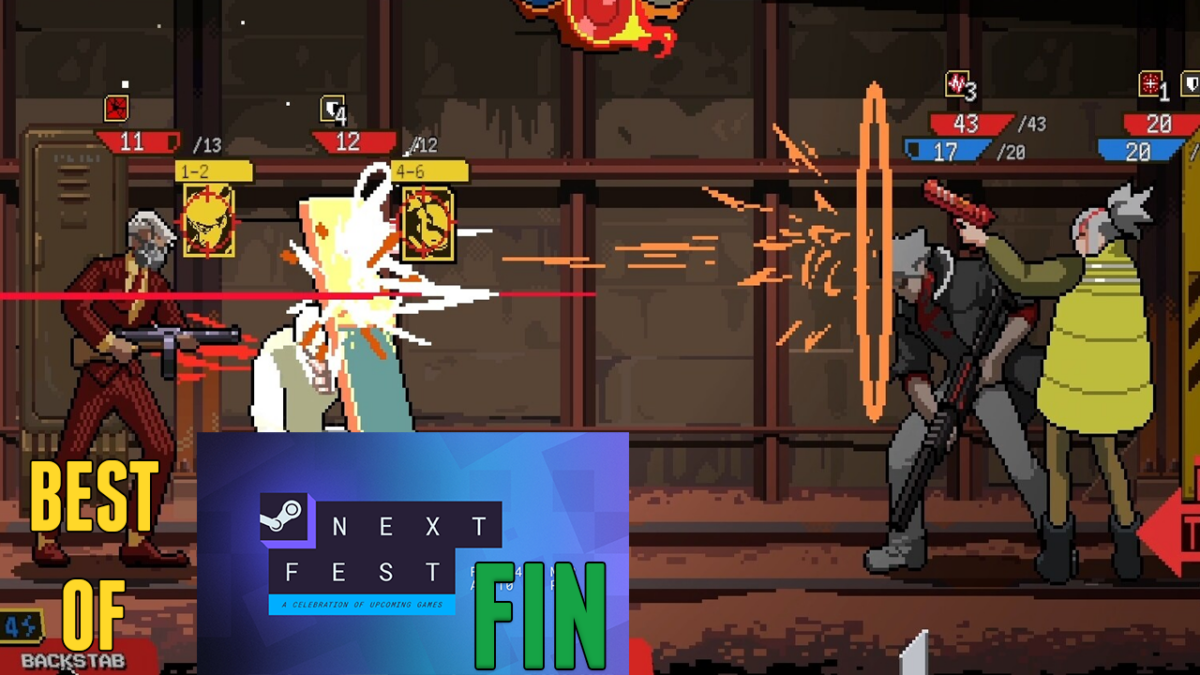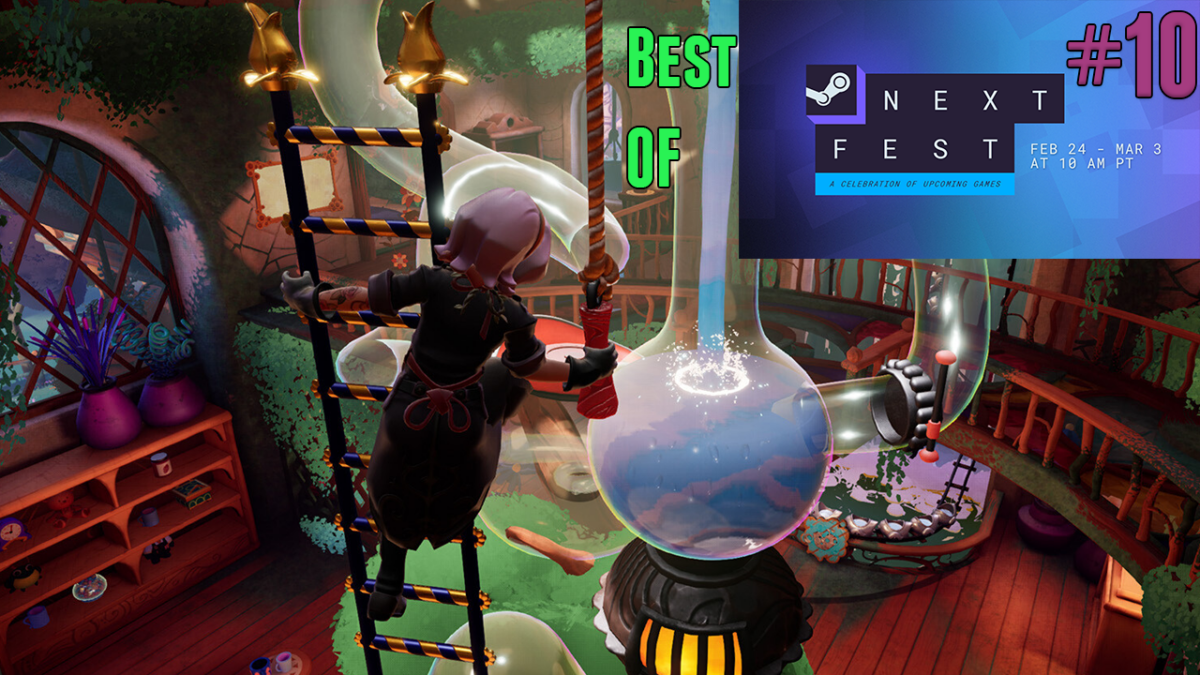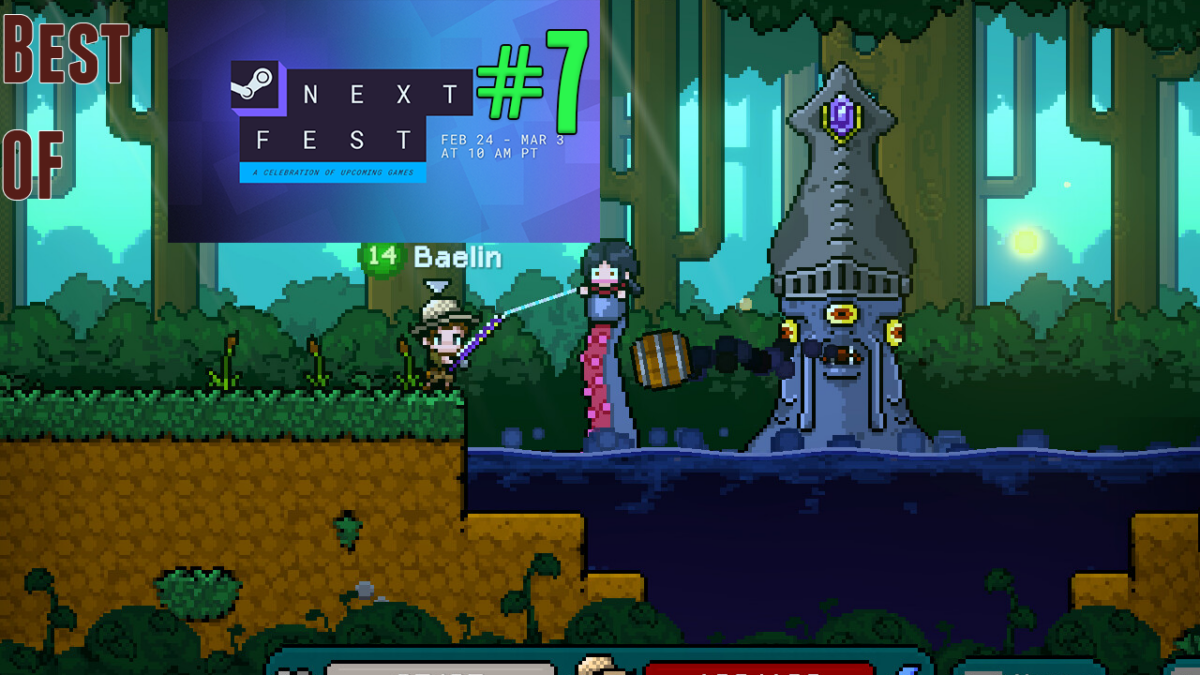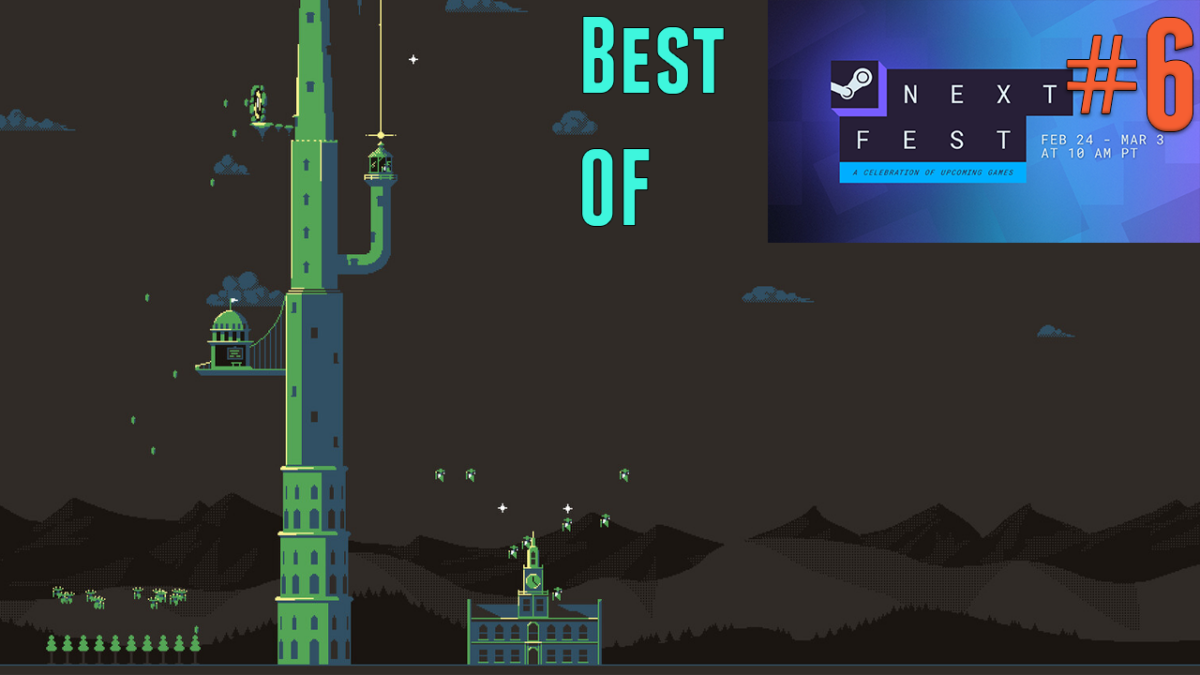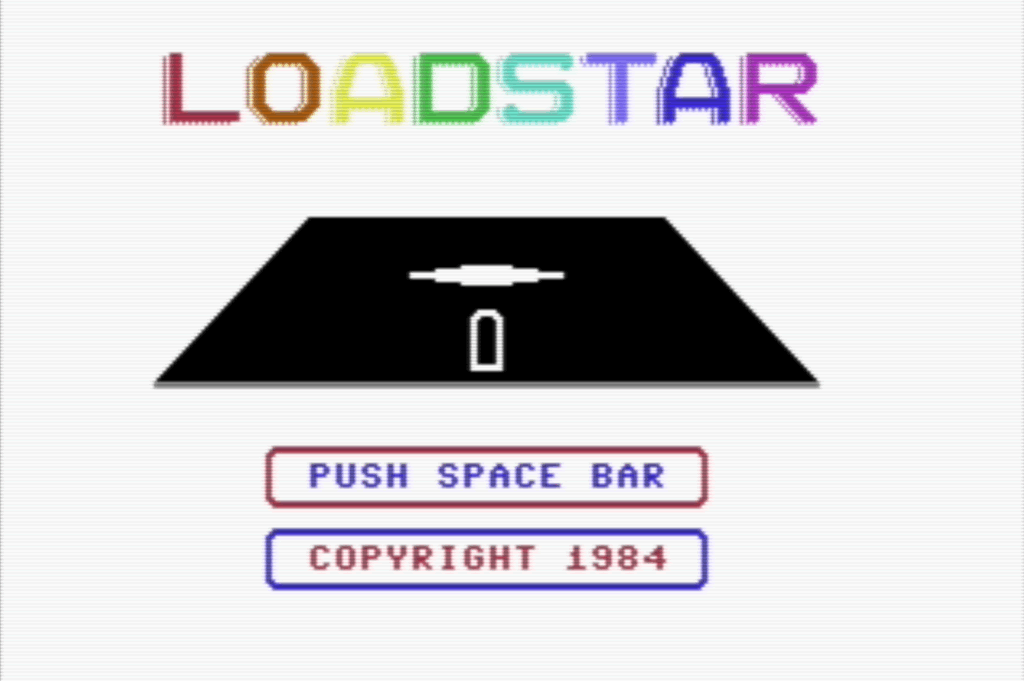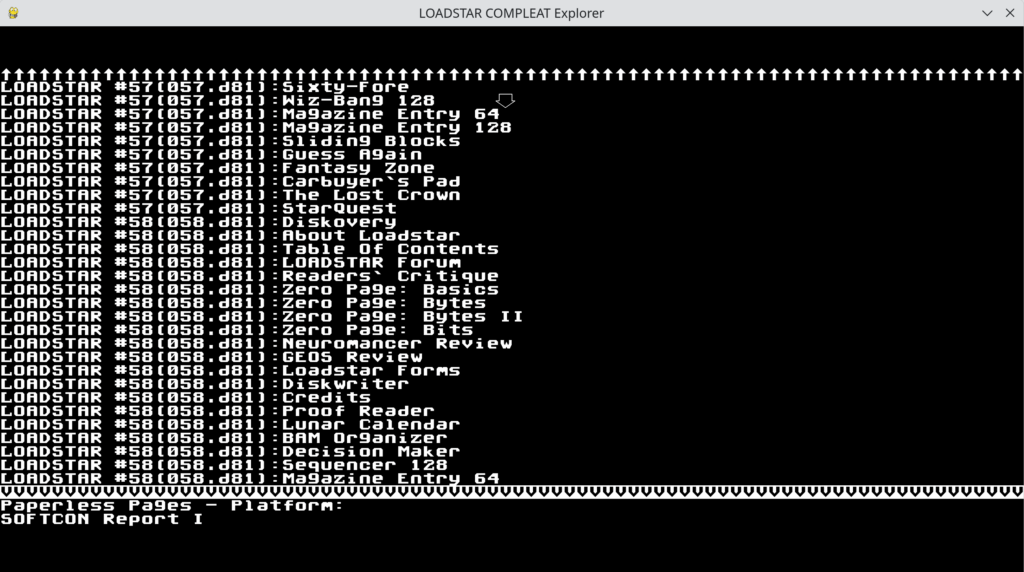Working on the Loadstar Compleat project has taken up a lot of time, so I keep trying to think of ways to use the things I’ve written for it here on Set Side B. This is the introduction I wrote (edited down to the history, mostly), and a shorter piece on the Eras of Loadstar.

Loadstar was an incredibly long-lived computer magazine, distributed on disk, for the Commodore 64 and 128 home computers. It began in 1985 and its last issue was distributed in 2007, covering a span of 22 years. It had 250 issues of the main publication, 42 quarterly issues dedicated to the Commodore 128, and numerous side products.
About Loadstar
Loadstar was initially created at Softdisk, Inc. You might have heard of Softdisk as the prior place of work of several employees who left the company, founded id Software, and created Commander Keen, Wolfenstein 3D, DOOM and Quake. It’s possible that some of them might remember the Loadstar guys, but it seems doubtful.
Loadstar was distributed on newsstands up to issue 72, when it switched over entirely to mail-order subscription sales. Despite this reduced exposure, Loadstar soldiered on. Starting with #32, some issues of Loadstar contained two disks of programs and information. These issues became more and more common until, beginning with Issue 43, every Loadstar contained at least two disks until the end of its run.
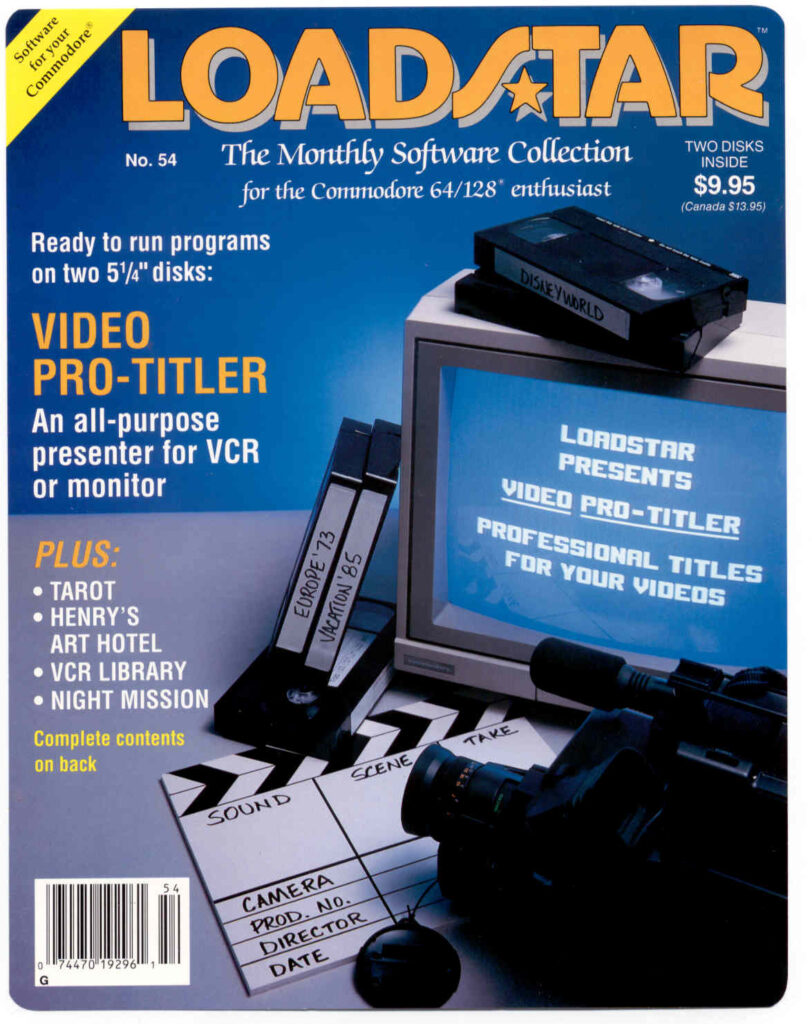
The Video Pro-Titler may still be of use today, if you have need of a simple character generator!
Issue 44 began the reign of Fender Tucker, who would helm Loadstar for the next fifteen years. Fender lent the magazine a distinctive style. He’d write editorials describing the magazine as originating in the “Loadstar Tower,” a wondrous place looming over its home town of Shreveport, Louisiana. (The magazine was actually produced in a basement.) He’d also write up the adventures of his nefarious alter-ego and musician Knees Calhoon, who was listed as the author of some of Fender’s own software. Under Fender Tucker’s guidence Loadstar flourished, and garnered a devoted community of users and contributors.
According to Jeff Jones, attitudes at Softdisk were that the company’s Windows and Mac products were the future of the company, but eventually the internet came along and dashed that dream. Softdisk continued along as an ISP for a time, but around 2006 its services were taken over by another company, and it’s now long defunct. During Softdisk’s later years Loadstar continued to support a large and loyal userbase, and didn’t cost much to produce, so it chugged along well into the internet age.
As Loadstar grew, so did its community, and the technology around it. While the Commodore 64 computer was discontinued in 1994, a thriving market of add-ons and upgrades sprang up to serve its users. Probably the most notable third-party producer of Commodore peripherals was CMD, Creative Micro Designs. While Commodore themselves had made expansion memory modules for the C64, CMD took their ball and sprinted way downfield. CMD made a disk drive accelerator (JiffyDOS), powered memory units that could serve as long-term storage, accelerator boards, and even hard drives compatible with the venerable 8-bit machine. Loadstar’s staff used many of these devices in its later years to help produce their magazine.
Loadstar had a symbiotic relationship for about four years with Commodore’s own publications Commodore Magazine and Power/Play. Some type-in magazines would offer a disk supplement, containing all of the software in an issue on a computer disk and saving users from the need to type them in. Commodore had an arrangement with Loadstar to serve as the disk supplement of their magazines. This deal lasted from around issues 11 to 61, and helped bulk out Loadstar’s issues with interesting software.
Early issues of Loadstar often hosted ports of programs that originally appeared in Softdisk. One notable series of these is the Alfredo animations, a sequence of programs that depicted the travails of a stick man trying to survive a dangerous landscape. See folks, the genre didn’t start with Adobe Flash! Long after its parent Softdisk Magazine closed up shop, Loadstar published two final, original Alfredo adventures, in two of Fender Tucker’s last issues, #197 and #199.
Loadstar never distributed the Commodore versions of GEOS, Berkeley Softworks’ surprisingly successful bid to bring a mouse-driven, icon-based, Mac-like point-and-click interface to 8-bit home computers, but starting with Issue 58 and throughout the rest of its run GEOS programs were a regular fixture on Loadstar’s electronic pages. In retrospect, GEOS was done much wrong. Seeing the way the wind was blowing, Berkeley Softworks attempted to bring their OS to DOS-compatible machines with GeoWorks, only to quickly be dismissed as a budget pretender to Windows’ throne. GEOS was far from the first, and certainly not the last, Windows competitor to be steamrollered beneath Microsoft’s hardball tactics. (See: CP/M, PC-DOS, OS/2.) Judging by quantity, Loadstar may be GEOS’ biggest supporter that wasn’t Berkeley Softworks or Commodore itself.
Another company that formed an arrangement with Loadstar was Quantum Compuer Services, which served the Commodore 64 community with an online service called QuantumLink. Several early Loadstar issues came with the QuantumLink client software included on one of its disk sides. (At least one of our included issues has a copy, now useless.) Quantum eventually released a similar service for MS-DOS-based computers, and renamed themselves to America On-Line.
“AOL,” as everyone called it, become a runaway hit. They would build upon its strategy of distributing their disks far and wide, first as 3 1/2″ floppies, then as CD-ROMs, and eventually DVDs. QuantumLink was left to languish and, after a long period of decay where users complained of unmaintained upload sections and unmoderated forums, AOL unceremoniously shut it down without so much as an archive. The later history of AOL is generally known: they bought out their rival CompuServe, AOL keywords were broadcast during daytime television, it was a popular early choice for a dial-up ISP, it became the most-used ISP in the United States, and they created a hugely popular instant messaging program (AOL Instant Messager, or “AIM”). Then they underwent a disastrous merger with Time-Warner that would be hastily undone, then obscurity encroached as first the internet, and then social media, made most of it services redundant. AIM, once thought unstoppable, faded and died as more people used their cell phone’s text feature. As of this writing AOL still exists, but it’s fallen far from the days when its iconic “You’ve Got Mail!” catchphrase became the title of a Hollywood movie, proving once again, truly: what goes around, comes around. Eventually.

The Eras of Loadstar
The Early Issues
Loadstar started as a C64 counterpart for Softdisk’s self-titled Apple II magazine. Many of its earliest programs are ports of Softdisk software.
Commodore Magazine
With Issue 9, Loadstar became the official disk supplement for both Commodore Magazine and Power/Play. The programs from those periodicals helped to greatly bulk out their offerings. The arrangement lasted until Loadstar issue 61.
The Rise of Fender
Loadstar’s longest-serving overseer was Fender Tucker, a kind and genuine person with an engaging writing style. Fender joined up with issue 42, and starting with the next issue, Loadstar moved to two disks a month.
Jeff Jones, Loadstar 128 & Loadstar Letter
Associate Editor Jeff Jones joined sometime between issues 49 and 55 and brought some additional technical know-how to Loadstar. In addition to touching up programs and contributing software of his own, Jeff was largely responsible for Loadstar Quarterly 128, their publication catering to Commodore 128 owners, and the Loadstar Letter, a print supplement distributed along with Loadstar.
Puzzle Pages
Barbara Schulak’s first program was Jump, published on Loadstar #44, but starting with issue 60 Loadstar published a monthly puzzle section that became the magazine’s most enduring feature. From then, every Loadstar had a Puzzle Page until issue 163, but the feature continued, mostly monthly, until issue 197. Barbara Schulak wasn’t the only contributor to the Puzzle Page, and there were puzzles outside of it, but Barbara was its soul.
The End of the Newsstand Edition
Issue 7 was the last issue of Loadstar 128 to be distributed on newsstands, and issue 72 was the last issue of Loadstar 64 to be buyable that way. For most magazines that would have been the end, but Loadstar still had 16 years of life in it, sold entirely through subscriptions, mail order sales, and later via the internet, a testament to the faithfulness of Commodore users.
The European Age
At its height around 1991, Loadstar had around 20,000 monthly subscribers. Without the free advertising provided by newsstands, by 1994 that had dropped to around 5,000. As Loadstar reached issue 100 and long years passed, it became harder to find contributions from US subscribers. Meanwhile the C64 was still going fairly strong in Great Britian, and many of the games of Loadstar from this era have a distinct demoscene feel. Loadstar also published demos, and reported on Commodore hacking circles. Loadstar would also embrace the internet, and offer issues for sale by way of their website.
Dave Moorman’s Tenure
The writing was on the wall. By 2000 Loadstar had about 1,000 subscribers left, too many to just abandon, but not enough to remain profitable for their then-meager staff. Fender handed the reins off to the worthy Dave Moorman, who kept it going to 2007. Moorman was a dogged manager, and went to lengths to keep the magazine full of items, including frequently reprinting software from the magazine’s glory days. While many of Loadstar’s prior stalwart contributors didn’t switch over, Fender himself still wrote for the magazine, and kept up with it until the end.
The Tornado
In 2007 a tornado struck Dave Moorman’s house, and wrecked his Loadstar-making setup. While one more issue, #250, would eke out in 2008, the 22-year run of Loadstar, last remnant of the once-mighty field of computer software periodicals, was over. Loadstar had outlived all of its sister magazines from Softdisk (including its DOS, Windows and Macintosh publications) Softdisk Inc. itself, as well as Compute, Compute’s Gazette, Commodore Magazine, Commodore Power/Play, Ahoy, Run Magazine, Family Computing, Creative Computing, UpTime and DieHard.
(I have been reminded of the value of marketing, so I have to include the $15 Loadstar Compleat package I’ve put together with the permission of J&F Publishing.)

